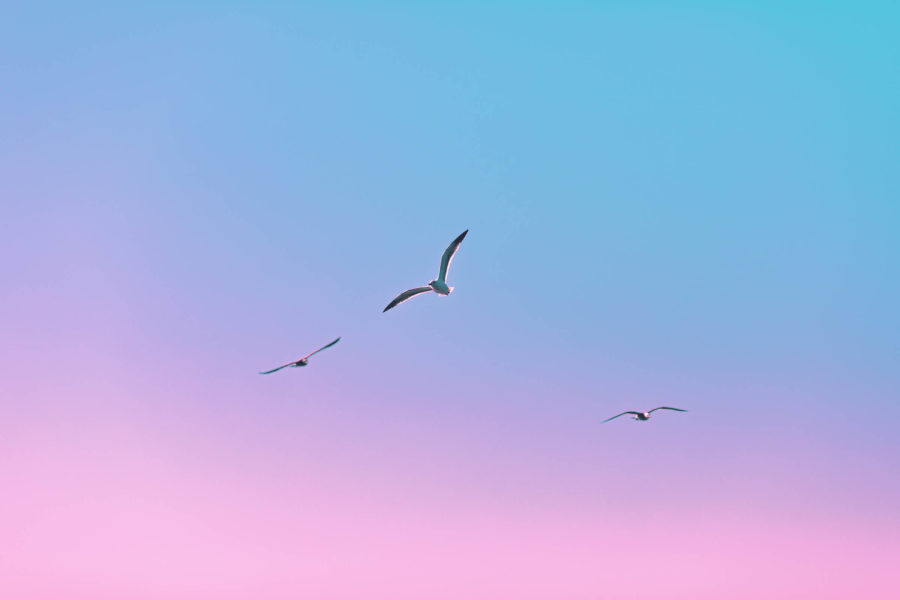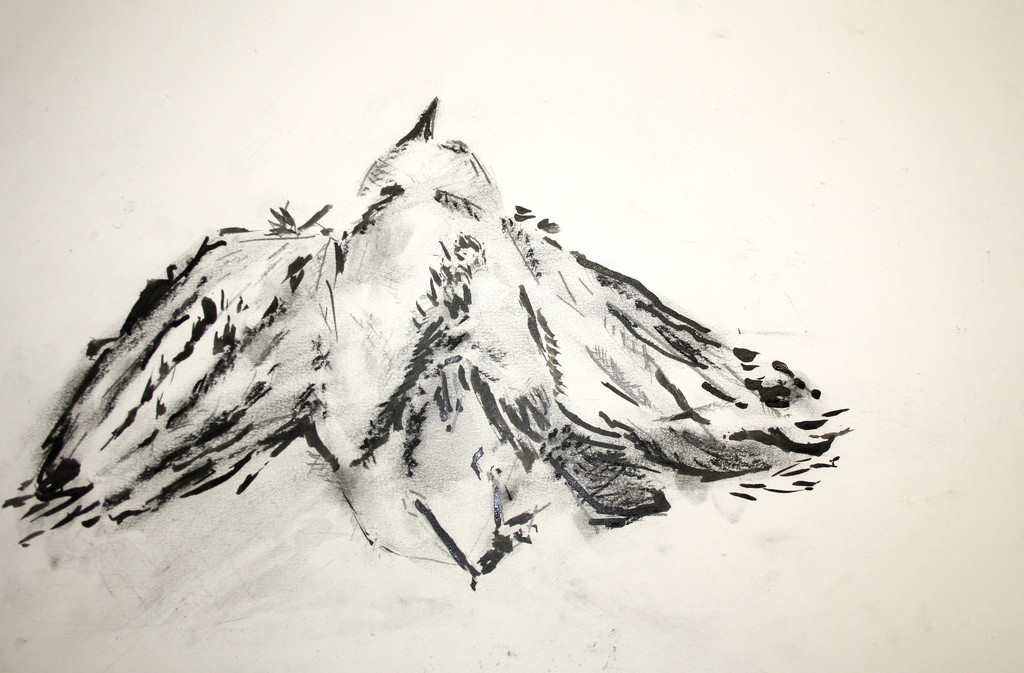Photo by Sophia.
I’ve been having an insightful shuffle through Mihaly Csikszentmihalyi’s book Creativity: The Work and Lives of 91 Eminent People. Mihaly is a seminal professor of Psychology and Management, and is the Founding Co-Director of the Quality of Life Research Center at Claremont. He writes:
“I have devoted 30 years of research to how creative people live and work, to make more understandable the mysterious process by which they come up with new ideas and new things. If I had to express in one word what makes their personalities different from others, it’s complexity. They show tendencies of thought and action that in most people are segregated. They contain contradictory extremes; instead of being an individual, each of them is a multitude.”
Nine out of the ten people in me strongly agree with that statement. As someone paid to be creative, I sometimes feel kaleidoscopic in my views or opinions, and that “multitude” of expressions sometimes confuses those around me. Why does that happen? My thoughts make cohesive sense to me, yet others sometimes feel that I am contradicting myself or switching positions. What is wrong with me?
Mihaly describes 9 contradictory traits that are frequently present in creative people:
01
Most creative people have a great deal of physical energy, but are often quiet and at rest. They can work long hours at great concentration.
02
Most creative people tend to be smart and naive at the same time. “It involves fluency, or the ability to generate a great quantity of ideas; flexibility, or the ability to switch from one perspective to another; and originality in picking unusual associations of ideas. These are the dimensions of thinking that most creativity tests measure, and that most creativity workshops try to enhance.”
03
Most creative people combine both playfulness and productivity, which can sometimes mean both responsibility and irresponsibility. “Despite the carefree air that many creative people affect, most of them work late into the night and persist when less driven individuals would not.” Usually this perseverance occurs at the expense of other responsibilities, or other people.
04
Most creative people alternate fluently between imagination and fantasy, and a rooted sense of reality. In both art and science, movement forward involves a leap of imagination, a leap into a world that is different from our present. Interestingly, this visionary imagination works in conjunction with a hyperawareness of reality. Attention to real details allows a creative person to imagine ways to improve them.
05
Most creative people tend to be both introverted and extroverted. Many people tend toward one extreme or the other, but highly creative people are a balance of both simultaneously.
06
Most creative people are genuinely humble and display a strong sense of pride at the same time.
07
Most creative people are both rebellious and conservative. “It is impossible to be creative without having first internalized an area of culture. So it’s difficult to see how a person can be creative without being both traditional and conservative and at the same time rebellious and iconoclastic.”
08
Most creative people are very passionate about their work, but remain extremely objective about it as well. They are able to admit when something they have made is not very good.
09
Most creative people’s openness and sensitivity exposes them to a large amount of suffering and pain, but joy and life in the midst of that suffering. “Perhaps the most important quality, the one that is most consistently present in all creative individuals, is the ability to enjoy the process of creation for its own sake. Without this trait, poets would give up striving for perfection and would write commercial jingles, economists would work for banks where they would earn at least twice as much as they do at universities, and physicists would stop doing basic research and join industrial laboratories where the conditions are better and the expectations more predictable.”
Sometimes what appears to be a contradiction on the surface is actually a harmony in disguise. My problem has been primarily one of communication. I am learning to let people know what I am thinking and why, and explaining myself in a way that helps them understand why I am discussing multiple perspectives instead of just cleanly stating my own. At first it might not make sense, but give me/us long enough, and it will.


i lovelove love this. it is SO me!!! i cant ever explain to others how i can be proud of, while at the same time as being humble about my work… i inevitably end up apologizing for saying that i love my work… it is awesomE!!! thanks you angel!!!
Thank you for the Blog post. It gave me more self confidence. 😀
Be careful with this article, it is an empty compliment in disguise. “Creative People” as a category is problematically dependent on how one sees oneself and most people would prefer to imagine themselves as a “creative person,” especially if allows the reader to think of themselves as exceptional as compared with the people around them. And in this way the article will more often than not help self-centered people continue to be self-centered. In my opinion most people under close inspection are actually pretty interesting and creative, but they (and the people around them) are too busy going about their lives to stop and acknowledge it. Almost all the attributes in this article have a horoscope-esque quality to them, they are broad and vague and often cover the spectrum of potential behavior. Its difficult not to find a way to fit these attributes to your own life. Instead of reading this article and deciding to be self congratulatory and a little bit vain (as about 75% of people commenting on this article are being), go find a young person and let them know that they, just like everyone around them, has it in them to be very creative.
Thank you. I avoid the hot spots for “creatives” in my town like the plague because I can barely fit into the places with all the immense egos.
Yes. This describes the creative battle between dark and light. Day with others and night alone.
Also, Matthew, would you consider putting your feed in Feedburner so I can get your posts in email? And maybe set up a Facebook page too. The more ways to follow and discover you the more I will, and the easier it will be to share your inspiring content. — JM
What a load of codswallop. This is a bunch of dribble receiving positive feedback as it merely puts forth encouragement to insecure people trying to convince themself they are creative and original by relating too very general human traits.
The whole idea and trying to place an explanation behind the oddity of creativity as seen in this article is contrived.
How can someone even label themselves a creative the whole term and ideas behind it and this article is the largest generalisation of peoples thought process and stimulants Ive ever read then I read the comments talk about having some humility guys.
Ps for a journalist and a “creative” nice job giving a fellow creative respect and credit for her work ie the photo in reference to sophies comment
Whoops forgot to mention if you study the top artists of our generation and many others. They completely understand their ideas and concepts theyve spent years analysing themselves and what they are trying to put forward this article reads more to the people who claim creative who have ok ideas maybe weak maybe maybe strong but they cannot analyse them express them through their work thus are they really creative then? This is another reason I dont agree with the term creative as well
Firstly, have you heard of punctuation? Your comments are very hard to read. I’m getting a bit fed up of people having a go at “creatives” and claiming they’re self-centred and big-headed. I am creative. I am not big-headed about it! Most of the people I spend my day with (at work as not all artists can support themselves through their art) don’t even know I’m an artistic. It’s you nay-sayers that are being vague and generalistic. I’m not sure what you’re being as I can’t really read your comment due to the terrible grammar.